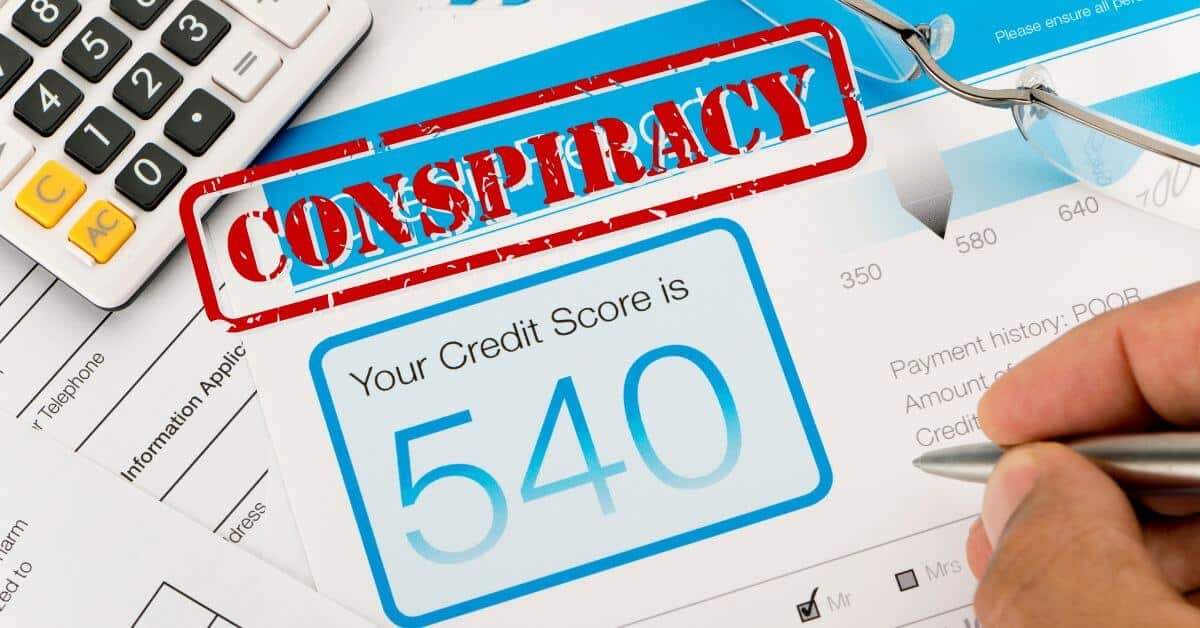I know, I know; you’ve probably done a bunch of Googling on how to raise your credit score fast, but I’m here with the solid, expert strategy you’re looking for. Today, we’re walking through the appropriate methods you need to improve your credit score. I’m bringing you tips on using your resources in the most efficient way possible to raise your credit score fast; it can be done!
How to Raise Your Credit Score With Limited Funds
We’ll start with a few techniques to use when you have limited funds available. Maybe you’re not in a position to pay off your entire debt, but you have additional resources and want to use them in the best way possible to give your credit score the biggest possible boost. What should you do?
1. Bring Your Past Due Accounts Current
Within the delinquent accounts on your credit report, there is a column called “Past Due.” The credit scoring software penalizes you for keeping accounts past due, so the accounts in this category are especially damaging. If you see an amount in this column, pay the creditor the past due amount reported.
2. Eliminate Charge Offs and Liens Within the Past 24 Months
Charge offs and liens within the past 24 months severely damage your credit score. However, those that are older than 24 months don’t have much of an impact, and paying them off won’t help or hurt. Use your funds to pay off past due amounts, then recent charge offs and liens.
3. Eliminate Your Collection Accounts
If your debts have gone to collections, you may assume the right course of action would be to pay the collection account. However, paying a collection account can actually lower your credit score! Confusing, right? Here’s the reason: credit scoring software tracks the activity on each account, and any activity will result in a negative impact on your score. So, even though you’re actually PAYING your debt, it will be recorded as a recent DLA (date of last activity) and will be submitted to the credit reporting bureaus. They only see activity on the delinquent account (not the fact that you PAID), which in turn lowers your credit score.
So, how is it possible to pay a collection account and maximize your scores? First, contact the collection agency. Explain that you are willing to pay off the collection account, under the condition that all the current negative reporting be withdrawn from the credit reporting agencies/bureaus. Request a letter from the collector that explicitly states their agreement to delete the account upon receipt/clearance of your payment. Although not all collection agencies will accommodate your request, removing all references to a collection account completely will increase your credit score, and it’s absolutely worth the attempt.
Steps to Raise Your Credit Score Without Any Additional Payments
Even if you have no extra funds to pay down your debt balance, there are a few tips for raising your credit score that you can do in spite of it! These methods do require a bit of leg work, but they’re absolutely worth the effort.
4. Eliminate Late Payments
Contact all creditors that report late payments on your credit reports and request a good faith adjustment that removes the late payments reported on your accounts. Even if they refuse at first, be persistent! Remind them that you have been a good customer, and that you would deeply appreciate their help. Since most creditors receive calls within a call center, if the representative refuses to make a courtesy adjustment on your account, call back and try again with someone else. Persistence and politeness pay off in this scenario. If you are frustrated, rude, and unclear with your request, you are making it very difficult for them to help you. Stay positive.
5. Check That Your Credit Limit(s) Are Being Reported and Evenly Allocate the Balances You Are Carrying
When your creditors report your balance to the three major bureaus, they should also be including your credit limit on each account. Check to make sure that they are doing so. If no credit limit is included on the credit report, your account will appear as “maxed-out.” A “maxed-out” account is much more damaging to your credit report, regardless of the amount of debt. The credit scoring software likes to see the lowest percentage of your credit limit used; 10% is ideal. Carrying a balance of over 70% of your total credit limit on any card damages your score the most. The next level is 50% of your balance, then 30% of your balance.
In order to maximize your score without having to pay down your balances, evenly distribute your credit card balances among all of your credit cards. For example, if you are carrying a $9000 balance on a credit card with a $10,000 limit, and you have two other credit cards with a $3,000 and $5,000 limit, transfer your balances so that you have a $1,500 balance on the $3,000 limit card, a $2,500 balance on the $5,000 limit card and a $5,000 balance on the $10,000 limit card. Evenly distributing your balances will maximize your score.
6. Do Not Close Your Credit Cards
This one can feel counterintuitive, so pay close attention! When you close a credit card, your debt to available credit ratio is changed. This can lower your credit score. For example, if you owe a total credit card debt of $10,000 and your total credit available is $20,000, you are using 50% of your total credit. If you close a credit card with a $5,000 credit limit, you will reduce your credit available to $15,000 and change your ratio to 66% of your credit available.
There are stipulations to this rule, however. It is a good idea to close cards if the account was opened within the past two years and you have over six credit cards. The magic number of credit card accounts is between 3 and 5 (although having more will not significantly damage your score). If a card was opened within the past two years and you have over six credit cards, you may close that account. If you have more than six department store cards, close the newest accounts. Otherwise, do not close any at all.
7. Open Business Credit Cards
Most business credit cards do not report to your personal credit reports; unless, of course, you pay the card late. Any debt carried on a business card does not hurt your personal credit scores, because it’s not being reported to your personal credit profiles. Apply for business credit cards now to start building this segment of your credit. If you operate your own business and want to learn how to build your business credit profile under the company’s name, give us a call at (317) 202-1297 and we will show you how.
8. Keep Old Credit Cards Active
Again, this may not be your first instinct, but it is important. 15% of your credit score is determined by the age of the credit file. Credit scoring software assumes that people who have had credit for a longer time are at lower risk of defaulting on payments. Therefore, even if your old credit cards have horrible interest rates, closing those cards will decrease the average length of time you’ve had credit. Use the old card at least once every six months to avoid the account rating from being reported as “Inactive.”
Keeping the card active is as simple as pumping gas or purchasing groceries every few months, then paying the balance down. You’ll get the benefit of the positive payment history and the low balance, while an inactive account is ignored by credit scoring software. The one thing all credit reports with scores over 800 have in common is a credit card that is twenty years old or older. Hold onto those old cards, trust me!
Raise Your Credit Faster With Patience!
Preparing credit is a slow and time consuming process. These tips will help you maximize your time and resources to raise your credit scores faster. Full knowledge of your credit profile and how it represents you to creditors and credit bureaus is pivotal to full credit restoration success.
If you’d like more support with the process, we are here to help. If you’re worried about errors on your credit reports, and you don’t want to go it alone, you can hire – InCreditable Advisors, LLC – to manage the credit repair process for you. Learn more about them here or call them at (317) 202-1297 or book a consultation and let them help you save money!







